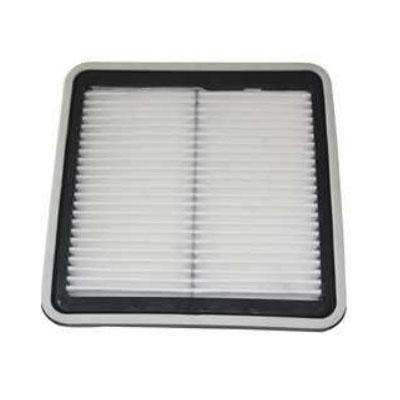Key aspects related to auto air filters
2023-10-16
An auto air filter is an essential component of a vehicle's engine intake system designed to filter and clean the air entering the engine. Its primary function is to remove contaminants and impurities from the incoming air before it reaches the engine's combustion chambers. Clean air is essential for efficient engine operation and helps extend the lifespan of the engine. Here are key aspects related to auto air filters:
1. Purpose: The primary purpose of an auto air filter is to filter the air that the engine needs for combustion. By removing dust, dirt, pollen, debris, and other particles from the incoming air, it prevents these contaminants from entering the engine cylinders, where they could cause damage, reduce fuel efficiency, and increase emissions.
2. Types of Filters: There are several types of air filters commonly used in vehicles, including:
- Paper or cellulose filters: These are the most common and cost-effective air filters. They consist of pleated paper or cellulose material that traps particles as air passes through.
- Foam filters: These filters are made of foam material and are often used in off-road or high-dust environments.
- Synthetic filters: These filters use synthetic fibers to trap particles and are known for their improved filtration efficiency and durability.
- Reusable or washable filters: Some aftermarket filters are designed to be cleaned and reused, reducing waste and long-term costs.
3. Maintenance: Regular maintenance of the air filter is important to ensure its effectiveness. Over time, the filter can become clogged with trapped particles, reducing airflow to the engine. Most vehicle manufacturers recommend replacing the air filter at specific intervals or when it becomes visibly dirty.
4. Performance: A clean air filter is crucial for maintaining optimal engine performance. It ensures that the engine receives the necessary oxygen for combustion while preventing the ingestion of harmful debris.
5. Fuel Efficiency: A clogged or dirty air filter can reduce fuel efficiency because the engine needs to work harder to draw in air. This can result in decreased miles per gallon (MPG).
6. Engine Longevity: An air filter plays a role in prolonging the life of the engine by preventing abrasive particles from entering and causing premature wear to internal components.
7. Emissions: A properly functioning air filter contributes to lower emissions by ensuring that the engine operates efficiently and burns fuel cleanly.
8. Replacement: Replacing an air filter is typically a straightforward maintenance task that can be done by vehicle owners themselves or by automotive service professionals. The replacement frequency varies depending on the vehicle and driving conditions but is often recommended every 15,000 to 30,000 miles or as specified in the owner's manual.
9. Aftermarket Filters: Some vehicle owners choose to install aftermarket air filters that claim to offer improved performance or filtration. However, it's essential to research and select reputable brands and products to ensure they meet the required specifications and do not negatively affect the engine.
In summary, an auto air filter is a vital component of a vehicle's engine system, responsible for keeping the incoming air clean and ensuring efficient engine operation, fuel efficiency, and reduced emissions. Regular maintenance and timely replacement of the air filter are essential for optimal vehicle performance and engine longevity.



